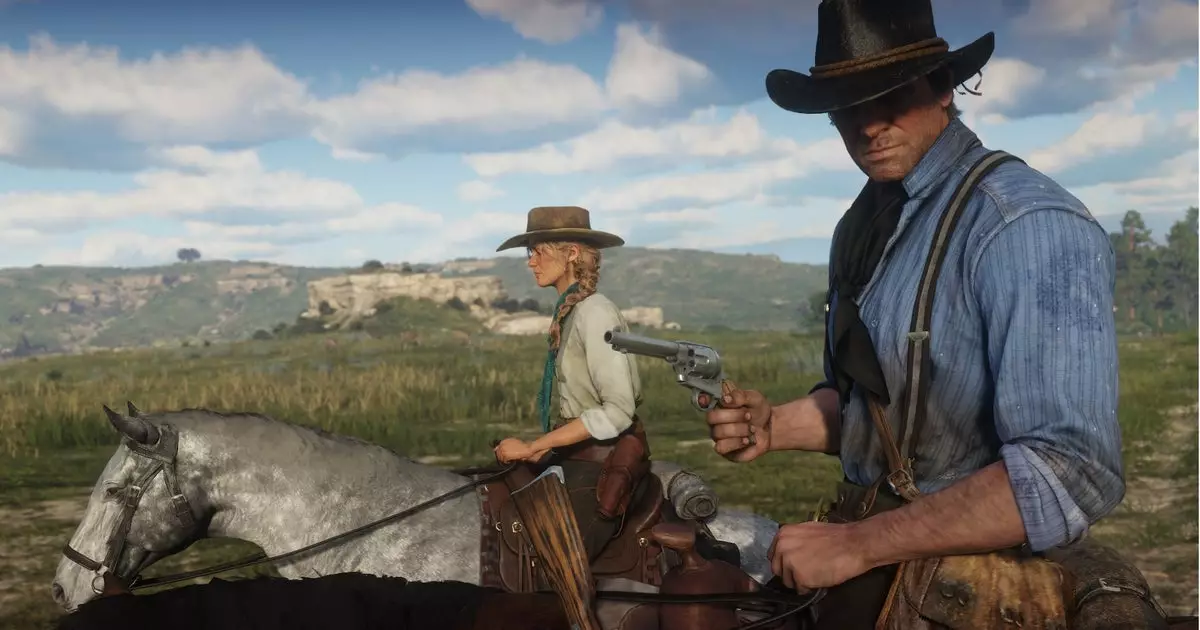After departing Blizzard earlier this year, the former president of the company, Mike Ybarra, suggested a new concept that might change the gaming industry. He proposed that players should have the option to tip developers after completing a game, in addition to the initial $70 purchase price. Ybarra’s idea stemmed from his appreciation for single-player games such as Elden Ring, Baldur’s Gate 3, Red Dead Redemption 2, God of War, and Horizon Zero Dawn, which left him amazed by the experience. He expressed a desire to reward developers for creating exceptional games without resorting to in-game microtransactions or paid DLC.
Ybarra’s suggestion to allow tipping in $70 games raises questions about where the additional funds would end up. While it is reasonable to argue that individual developers and studio staff deserve more financial recognition for their work, many believe that tipping on triple-A games might only benefit the publishers rather than the actual creators. In an industry where massive corporations often dictate the terms, it becomes crucial to ensure that any additional revenue from players’ tips goes directly to the developers who pour their creativity and hard work into crafting the games.
The current landscape of the gaming industry, with its skyrocketing prices and demands for continuous content updates, has raised concerns about sustainability. Some industry figures, like Matthew Karch of Saber Interactive, have voiced their apprehensions about the long-term viability of the industry’s model. The prevailing sentiment is that the existing practices, such as charging high prices for games and pushing for constant monetization, are unsustainable and could lead to negative consequences in the future.
Despite Ybarra’s acknowledgment that many might dislike the idea of tipping developers after finishing a game, he sees it as a way to directly reward the creators for their efforts. The act of tipping, in this context, differs from the common practice seen in other service industries, where tipping is often perceived as necessary for workers to earn a living wage. By framing it as a form of appreciation for exceptional game development, Ybarra aims to shift the conversation towards supporting the actual talent behind the games rather than the corporate entities that oversee their production.
While the concept of tipping developers after completing a game remains contentious, it could pave the way for a more sustainable and equitable gaming industry. By providing players with the option to directly support the developers who create memorable gaming experiences, it might help mitigate some of the current issues plaguing the industry. However, without clear guidelines and mechanisms to ensure that the tips reach the intended recipients, there is a risk that the system could be exploited by publishers or other intermediaries, detracting from its original purpose.
The idea of allowing players to tip developers after finishing a game challenges traditional notions of pricing and compensation in the gaming industry. It highlights the need to recognize and reward the creative individuals behind the games, rather than solely focusing on the commercial aspects of game development. While the concept raises valid concerns about implementation and fairness, it also offers a potential pathway towards a more sustainable and supportive ecosystem for game creators and players alike. As the industry continues to evolve, exploring new models of compensation and appreciation could lead to a healthier and more fulfilling gaming landscape for all involved.


Leave a Reply